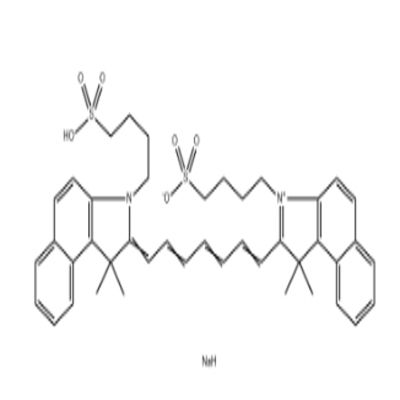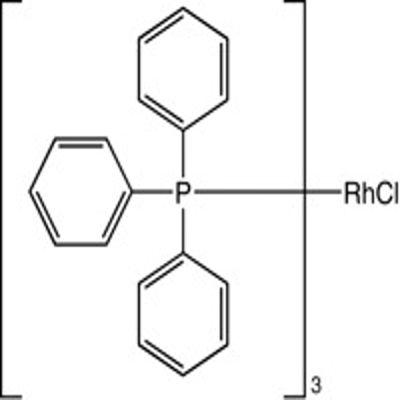Which cancers can be treated by the "Trojan horse" ADC drug that kills cancer cells?
-
Last Update: 2019-12-03
-
Source: Internet
-
Author: User
Search more information of high quality chemicals, good prices and reliable suppliers, visit
www.echemi.com
Antibody drug conjugate (ADC) is a new type of anticancer drug, which can target specific cancer cells and "infiltrate" them to release drugs Because of its special mechanism, it is called "Trojan horse" to kill cancer cells At present, several drugs have been initially used in clinical practice, and many clinical studies are under way Recently, JAMA oncology, a journal of the American Medical Association, made a brief inventory of these promising drugs Screenshot source: JAMA oncology official website ADC usually consists of three parts: specific antibodies that can target cancer cells, proteins that play a role of linking, and cytotoxic chemical molecules attached to the antibodies After binding the specific receptor on the surface of cancer cells, the antibody will be "swallowed" by cancer cells, and release cytotoxic drugs in cancer cells, playing a killing role On the one hand, ADC is expected to be used in a variety of cancer treatment because of the personalized design of antibody binding to cancer cell targets On the other hand, the cytotoxic drugs contained in ADC are usually unable to be administered alone because of "too much firepower" This way of action can precisely reduce the harm of cytotoxic drugs to healthy cells Such drugs are usually given intravenously According to the targeted cancer cell receptor and cytotoxic drugs, the side effects of specific drugs are different The most common adverse reactions may be that before ADC is swallowed into cancer cells, cytotoxic drugs are released into the blood in advance, resulting in low counts of red blood cells, white blood cells, platelets, peripheral neuropathy, liver damage and vision changes The antibody drug conjugate consists of three parts, which can target specific cancer cells and "infiltrate" them to release drugs (picture source: reference [2]) At present, 5 ADC have been approved for the treatment of blood cancer or breast cancer Mylotarg (gemtuzumab ozogamicin): it has been approved by the US FDA and EU for acute myeloid leukemia (AML) The drug can target CD33 receptors expressed on the surface of myeloblasts, up to 90% of AML patients have CD33 Adcetris (brentuximab vedotin): targeting CD30 receptor, has been approved by FDA for some patients with classic Hodgkin's lymphoma and anaplastic large cell lymphoma Besponsa (besponsa): targeting CD22 receptor, has been approved by FDA for B-cell precursor acute lymphoid leukemia Poly (polyatuzumab vedotin piiq): targeting CD79b receptor, which has been approved by FDA in combination with chemotherapy regimen for recurrent diffuse large B-cell lymphoma (the most common non Hodgkin's lymphoma) FDA has pointed out that this is also the first immunochemotherapy for this disease In a phase 1B / 2 clinical trial, patients treated with Polivy and standard therapy (bendamoxetine and rituximab) more than doubled their complete remission rate (40% vs 18%) compared to the standard therapy group alone Kadcyla (ADO trastuzumab emtansine): contains trastuzumab, a drug component of breast cancer monoclonal antibody, targeting HER2 protein, which is approved by FDA for the adjuvant treatment and metastatic breast cancer treatment of HER2 positive early breast cancer At the same time, there are nearly 60 ADC under research in nearly 600 clinical trials The new generation of ADC has also improved the design of connexin and cytotoxic drug release mechanism of ADC Blood cancer, including leukemia and lymphoma, is still the treatment target of most ADCs, but more and more new generation ADCs have begun to explore the application in breast cancer, colorectal cancer, lung cancer, prostate cancer, ovarian cancer, urothelial cancer and other solid tumors For example, an ADC named tisotumab vedotin in early clinical trials showed therapeutic potential in six different cancer patients As a new immunotherapy drug and one of the main strategies to fight against cancer, ADC is being developed all over the world We hope that the efficacy and safety of more drugs can be verified to benefit more cancer patients.
This article is an English version of an article which is originally in the Chinese language on echemi.com and is provided for information purposes only.
This website makes no representation or warranty of any kind, either expressed or implied, as to the accuracy, completeness ownership or reliability of
the article or any translations thereof. If you have any concerns or complaints relating to the article, please send an email, providing a detailed
description of the concern or complaint, to
service@echemi.com. A staff member will contact you within 5 working days. Once verified, infringing content
will be removed immediately.







